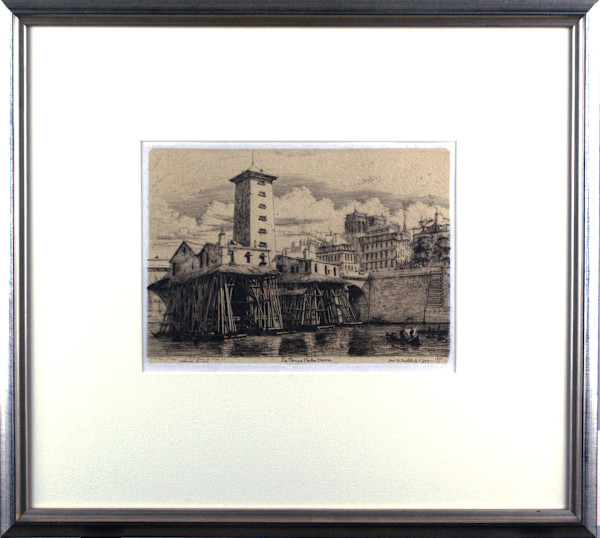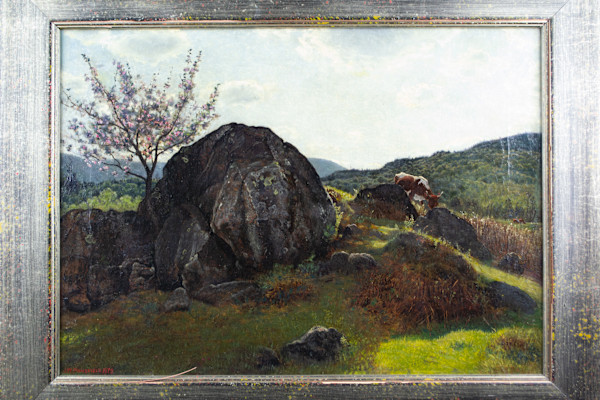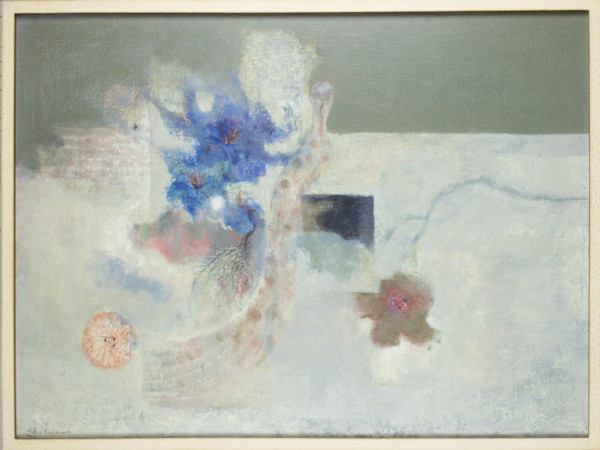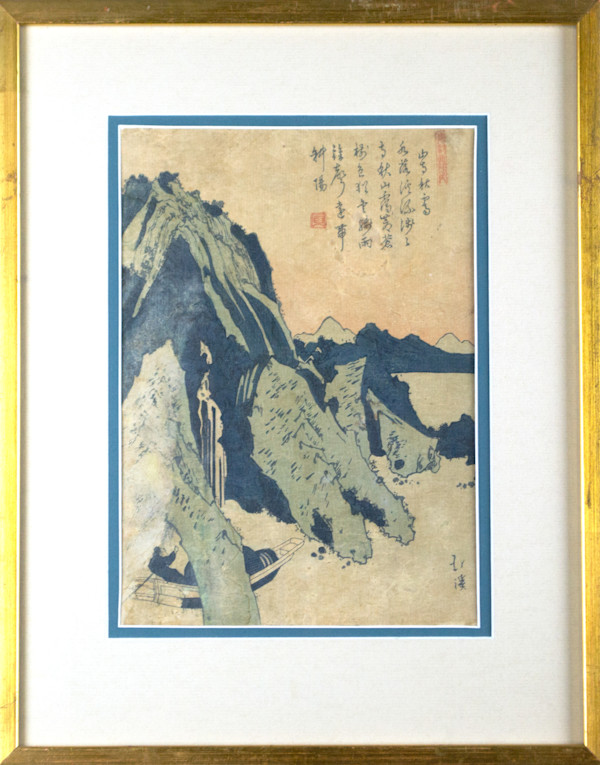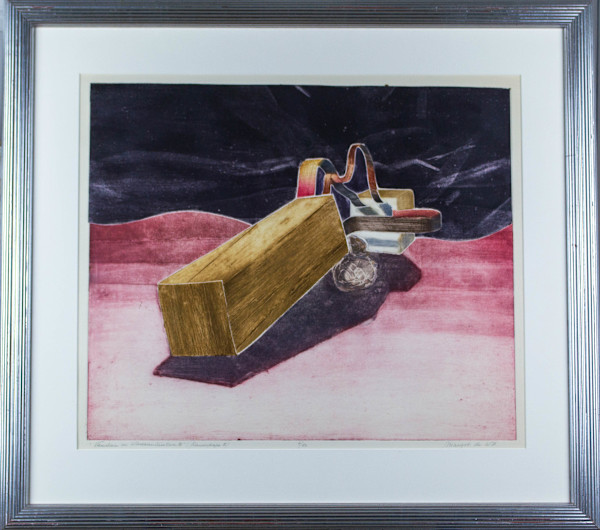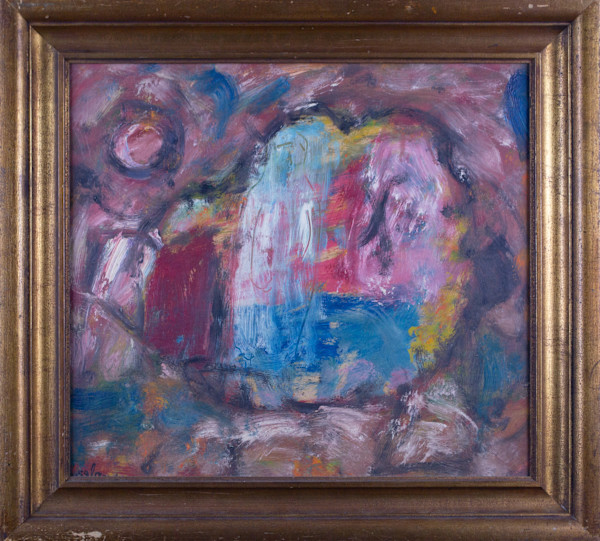- Samuel Maitin
- Laird-God-Army, 1969, 1970
- Lithograph
- 29 x 20 in
- Framed: 37 x 29 in
- Signature: Signed, dated and numbered 7/20 and inscribed "for Ed Bernstein, my friend. -Sam" at lower right
- Inv: 1996-LITH-023
-
Available
Sam Maitin show: Melvin R. Laird, U.S. Secretary of Defense from 1969 to 1973, publicly supported President Nixon’s decision to expand a bombing campaign into Cambodia in 1969. In private, he opposed the decision. Laird advocated for Vietnamization, building South Vietnamese military capability to allow a phased withdrawal of U.S. troops.
On January 27, 1973, the United States, South Vietnam, Viet Cong, and North Vietnam signed the Paris Peace Accords ending the war. Laird suspended the draft the same day and stepped down from his office two days later.
Disembodied organs provide a stark contrast to Laird’s clean profile. This poster protests Laird maintaining the military’s links between religion and morality. Sam believed religion got in the way of peace.
Dox Thrash show: Samuel Maitin used his art as a tool for political activism. He often created poster art because he saw it as non-elitist, effective way to share ideas with many people. In the 1970s, Maitin joined a group of artists and poets who protested the Vietnam War. He contributed several posters advocating peace. This anti-war poster features a quote from Secretary of Defense Melvin R. Laird: “with regard to character-guidance programs within the military departments, I want to state that there will be no prohibition against the use of God, supreme being, creator, faith.” Maitin’s image of a human profile and disembodied sexual organs, which invoked the violence of war, provided a dark contrast to the clean-cut image of Laird and his refusal to disavow links between religion and morality in the U.S. military.
Note the artist’s inscription to Edward Bernstein in the lower righthand corner, dated Sept. 4, 1970.
Other Work From Villanova University Art Collection
Please Note: These records are part of an active and evolving database. It may include information sourced from historical documentation that has not been recently reviewed and may be incomplete or inaccurate. Some language or imagery may reflect outdated, offensive, or harmful views. These records are shared in the interest of transparency and research. Our work to research, update, and expand the collection is ongoing. We welcome your insights.
Questions, suggestions, or feedback? Please reach out to us at [email protected]



